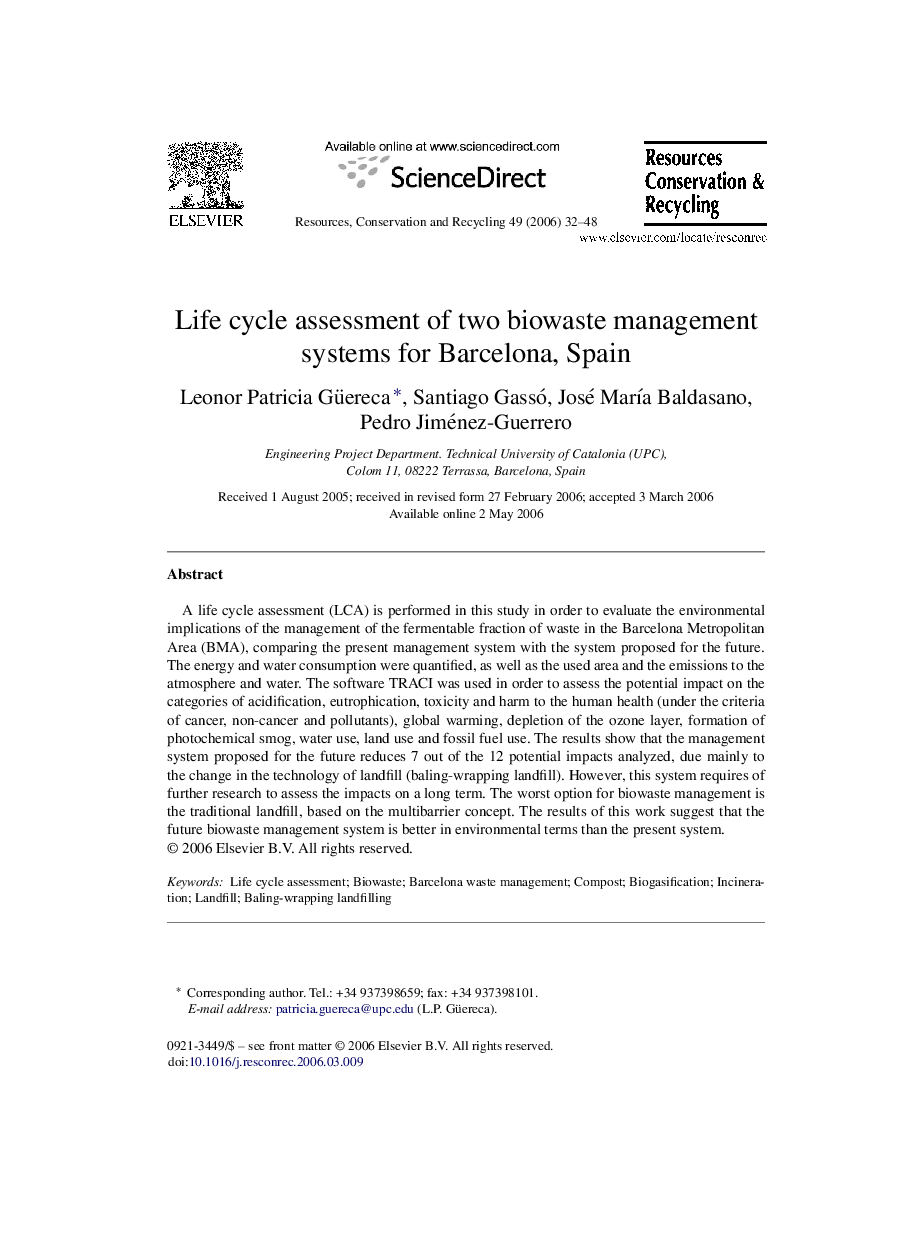| Article ID | Journal | Published Year | Pages | File Type |
|---|---|---|---|---|
| 1064087 | Resources, Conservation and Recycling | 2006 | 17 Pages |
A life cycle assessment (LCA) is performed in this study in order to evaluate the environmental implications of the management of the fermentable fraction of waste in the Barcelona Metropolitan Area (BMA), comparing the present management system with the system proposed for the future. The energy and water consumption were quantified, as well as the used area and the emissions to the atmosphere and water. The software TRACI was used in order to assess the potential impact on the categories of acidification, eutrophication, toxicity and harm to the human health (under the criteria of cancer, non-cancer and pollutants), global warming, depletion of the ozone layer, formation of photochemical smog, water use, land use and fossil fuel use. The results show that the management system proposed for the future reduces 7 out of the 12 potential impacts analyzed, due mainly to the change in the technology of landfill (baling-wrapping landfill). However, this system requires of further research to assess the impacts on a long term. The worst option for biowaste management is the traditional landfill, based on the multibarrier concept. The results of this work suggest that the future biowaste management system is better in environmental terms than the present system.
